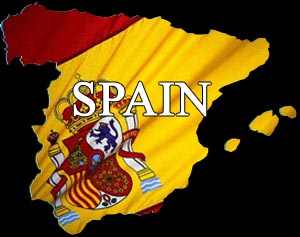Basque separatism seen as weaker after socialist success in poll
 Madrid - Separatist tendencies were Monday seen as having suffered a major setback in the Basque region, as a party defending Spain's unity appeared set to form a regional government for the first time.
Madrid - Separatist tendencies were Monday seen as having suffered a major setback in the Basque region, as a party defending Spain's unity appeared set to form a regional government for the first time.
Outgoing Basque Prime Minister Juan Jose Ibarretxe's Basque Nationalist Party (PNV), which wants to loosen ties with Spain, won Sunday's regional elections, but did not get a sufficient majority to govern in a coalition with its traditional nationalist partners.
Spanish Prime Minister Jose Luis Rodriguez Zapatero's socialists, on the other hand, could form a government if they entered a coalition with the conservative People's Party (PP) and the new party UPyD.
The conservatives said they were willing to join such a coalition in order to end nationalist rule, despite years of tension between the socialists and the PP on national level.
The election result opened a "new era" for the troubled northern region of 2.1 million residents, the daily El Mundo said in an editorial.
The Basque region could now get its first non-nationalist government after having been ruled by the PNV since it was first granted a regional autonomy status in 1979.
Not only would the government be headed by a mainstream Spanish party, but the Basque parliament will also be the first one without radical separatists after two formations close to the militant separatist group ETA were excluded from the elections.
There would be "no more room in the Basque parliament for sovereignty plans or... complicity with terrorism," a commentator wrote in the daily El Pais.
The electoral success of Basque socialist leader Patxi Lopez was seen as a boost for Zapatero, whose support had suffered over Spain's deepening recession.
An eventual Basque alliance between the socialists and the PP was, however, expected to cost Zapatero's minority government the support of the PNV in the national parliament, forcing him to seek new allies.
The spectacular rise of Lopez, who increased socialist support from 19 to 24 seats in the 75-member regional parliament, was seen as reflecting voter fatigue with the constant debate on self- determination.
Ibarretxe's own party has been divided over his attempts to stage a regional vote on the Basques' "right to decide" their political future, and most Basques have long hoped to see the end of ETA, which has killed more than 820 people since 1968.
Lopez has denied PNV claims that he would act as a puppet of his party's Madrid office, but it appeared clear that a socialist-led Basque government would be less keen than the PNV on nationalist policies such as promoting the Basque language alongside Spanish.
Such a government was also expected to be tougher on radical separatists, a factor which could increase short-term violence despite the weakening of ETA.
Elections were also held in the north-western Galicia region, where the PP was expected to form a government after getting an absolute majority.
The conservatives will thus restore their traditional domination in Galicia, after four years of rule by a coalition of socialists and Galician nationalists.
The Galician result was seen as a big blow to Zapatero and as a boost to PP leader Mariano Rajoy, whose leadership had been questioned after two successive national election defeats and over corruption allegations affecting his party. (dpa)